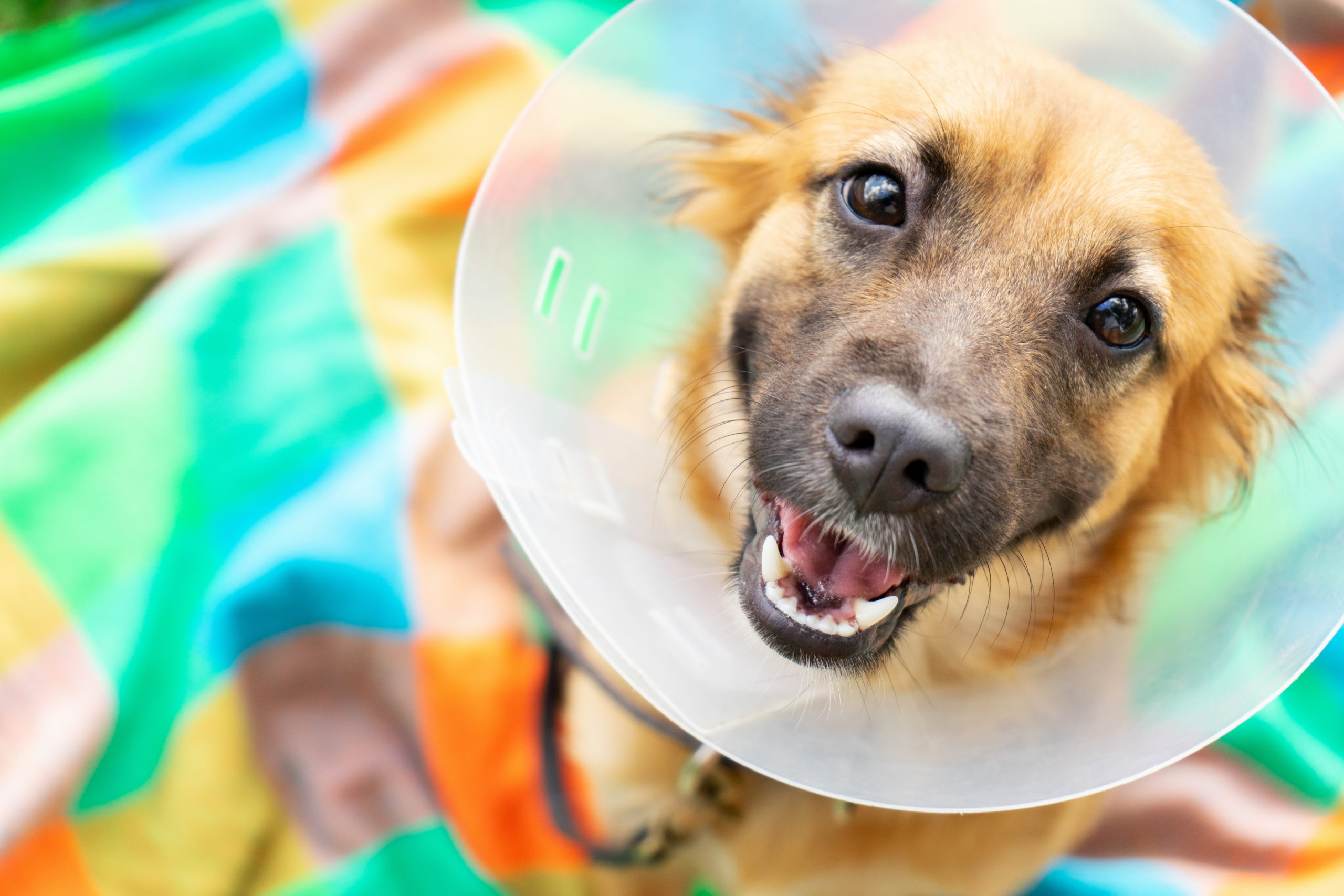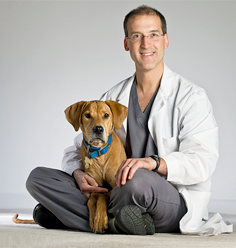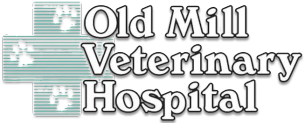
Pet Orthopedic Surgery
If your pet has recently started experiencing pain or has chronic pain, it could result from a variety of orthopedic conditions, such as hip dysplasia. Whether these orthopedic issues result from age, breed or injury, they can impact your pet’s overall quality of life.
One treatment option to help your pet minimize pain and regain mobility is veterinary orthopedic surgery. At Old Mill Veterinary Hospital, our orthopedic surgery team will work with you and your pet to determine which surgery option is most beneficial for your pet and their needs.
Dr. Tibor Lazar & Lazar Veterinary Surgery

Tibor Lazar, DVM
Dr. Lazar is a Board Certified Veterinary Surgeon who, when needed, provides orthopedic and complex soft tissue surgeries at our hospital. This allows our patients and clients to receive these procedures while retaining pre-surgical and post-surgical care and follow-up with our OMVH team. Dr. Lazar grew up in Fairfax County, graduated from Robinson High School in 1987, and received his BA in biology at the University of Virginia in 1991. He earned a Doctor of Veterinary Medicine degree in 1996 from the Virginia-Maryland Regional College of Veterinary Medicine. In 1997, he completed a one-year rotating internship in small animal medicine and surgery at the Animal Medical Center in New York City. Following a year of private practice in Manhattan, Dr. Lazar moved to Maitland, Florida, and spent four years in a small animal surgery internship and residency at Affiliated Veterinary Specialists. In 2003, he earned board certification by the American College of Veterinary Surgeons. Since 2002, Dr. Lazar has focused on small animal specialty surgery in Northern Virginia. He lives in Reston with his wife, two sons and a plethora of pets including dogs, cats, birds, snakes, and fish. To learn more about Dr. Lazar and his services visit https://lazarveterinarysurgery.com
Our Veterinary Orthopedic Surgery Services
At Old Mill Veterinary Hospital, we understand each pet has different needs for treating and relieving pain. Our orthopedic surgeons and veterinarians will communicate with you and examine your pet to fully diagnose their orthopedic problems while answering any questions you may have about the upcoming surgical procedures. We offer the following orthopedic services at our clinic through our partnership with Dr. Lazar and Lazar Veterinary Surgery:
Cruciate Repair
Tearing the cranial cruciate ligament is one of the most common pet injuries. When this ligament tears, the shin bone slides forward and meets the thigh bone. As these bones touch, the cartilage becomes unstable and may cause your pet to develop osteoarthritis.
Your pet may have a torn cranial cruciate ligament if they have one of these common symptoms:
- Obvious pain
- Stiffness in the hind legs
- Swelling of the knee joint
- Licking or biting the knee
- Clicking sounds when they walk
- Not using a leg after activities
Since you cannot heal a cranial cruciate ligament tear with medication or rest, your pet must undergo cruciate repair surgery to repair the ligament. Our expert team has years of experience performing cruciate repair surgery and will explain the entire process to ensure you feel comfortable and confident moving forward.
Veterinary Fracture Repair
If your pet experiences a fall, a bite from another animal or another traumatic event, they may have a bone fracture. Common signs that a pet has fractured a bone include:
- Difficulty getting up and walking
- Picking up or refusing to put weight on the injured limb
- Abnormal movement
- Swelling or pain around the injured site
Undergoing surgical fracture repair may be the best option to help your pet regain mobility with minimal pain in the affected area. Your pet will need anesthesia if they require surgical repair for a fracture. Our skilled orthopedic team will ensure the surgical process is painless, so your pet can return to feeling their best sooner.
Veterinary Involved Fracture Repair
For more involved fractures, the best action may be to amputate the limb. If your pet experiences a non-repairable fracture, limb amputation will ensure a successful treatment. While it may take longer for your pet to recover from amputation than surgery, this procedure will ensure your pet continues to live a happy and healthy life.
Veterinary Patella Repair
Many toy and miniature pet breeds are susceptible to patella issues, such as the kneecap slipping out of the groove if it is too shallow. When the patella becomes dislocated, you may notice signs like:
- Visible pain
- Inability to walk
- Difficulty bearing weight on the affected leg
- Greater attention to the knee area, such as increased biting or licking
Patella luxation repair surgery can help your pet regain mobility and restore their quality of life.
How Does Orthopedic Surgery Work?
Orthopedic surgery for pets involves procedures that help to restore your pet’s limbs to their uninjured state and promote healing. Depending on your pet’s specific medical needs, our veterinary surgery team may use bone plates, pins or screws, nylon, casts or artificial joints to achieve their orthopedic surgery goals.
Before starting pet orthopedic surgery, your pet will undergo heavy sedation and receive supplementary oxygen, as their specific procedure may take a few hours to complete. Since orthopedic surgery is an intensive process, your pet will need blood work and an overall analysis to ensure they are in good health before starting surgery.
What to Expect During Your Pet’s Recovery Period
After their procedure, your pet will require time to recover in the hospital and additional care at home. Our surgery team will discuss post-operative care to ensure you understand how to help your pet on their road to recovery. If there are any concerns about your pet’s health post-surgery, they may remain at our facility for a few days. This period ensures they are comfortable and fully recovered from their operation.
Your pet will need to rest after surgery, and they are likely to be groggy and confused as the anesthesia wears off. You will also need to ensure your pet is not too active, which may impact the healing process. Administer all prescribed medications as directed during the recovery period and monitor the incision for infections. If your pet experiences any complications, make sure to call our office immediately so we can help your pet recover and feel their best as soon as possible.
What Are the Benefits of Orthopedic Surgery for Your Pet?
Orthopedic surgery effectively improves mobility, reduces pain and improves your pet’s overall quality of life. Some additional benefits of orthopedic surgery are:
- Orthopedic surgery serves as a curative treatment for many joint problems, such as fractures and arthritis.
- Undergoing an orthopedic procedure can improve your pet’s overall mobility and helps them get better faster.
- Orthopedic surgeries aim to prevent complications that may arise if your pet’s condition remains untreated.
- Pets experience no pain during orthopedic surgery since they must receive anesthesia.
- Depending on your pet’s needs, their surgery may be minimally invasive, reducing their bleeding, pain and recovery period.
Schedule an Appointment for Your Pet at Old Mill Veterinary Hospital
Help your pet restore and improve their quality of life with orthopedic surgery services from Old Mill Veterinary Hospital. Our world-class services will ensure your pet receives the expert care they need. What’s more, we are more than happy to walk you through the entire process so you feel confident about your pet’s care plan.
Are you looking for veterinary orthopedic surgery in Leesburg? Contact the team at Old Mill Veterinary Hospital today to learn more about our orthopedic surgery services or schedule an appointment for your pet.
